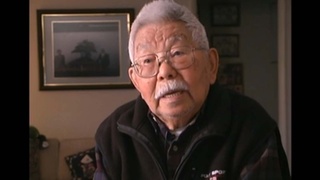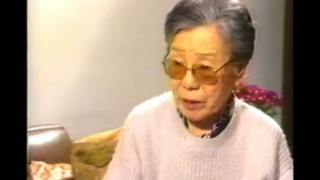Experiences in the farmlands (Japanese)
(Japanese) I went to a farmland called Fasenda Dumont. There, the coffee wasn't growing much. They're on big tress, and you look up, and you can only see a few that were growing. Every time we hit [the branches of the coffee tree] we'd get in trouble for it. so we'd go away, and then come back to slap at it again. That was the only way we could get the coffee. That's kind of how it was. So now I'm in Brazil, there's no coffee, and I have little money. The people in that farmland were mostly Japanese, so we asked for an interpreter from Rio, and we made negotiations with the other fazendeiro (farmers). In the end they conceded, and we were allowed to leave the farmland. So we didn't run away during the night (laughs). [We left] very openly. So, well, when we left we split into two groups and left at different times. I went on to work at a railroad factory for Lins, in Noroeste. Someone else went to work in Santos, waiting for a ship bound for Japan to come around, thinking, "Well, it's sure to arrive someday." But it wouldn't come for quite some time. There were also a few who went to Argentina, and some floated over to Sao Paulo city. We spread apart like so. That's how things went the first time around. It happened to me just like that, too. In my case, the immigration company really hounded me for that. "Your six-month contract isn't over yet, so you have to fulfill your obligations," they would say. And I would defiantly say "No, no, no, no." So then they would threaten that the "The debt will be put on your parent's shoulders," but I just said "Fine, go ahead, go ahead," to just have them take it (laughs).
Date:
Location: Brazil
Contributed by: Caminho da memória - 遥かなるみちのり. São Paulo, Brazil: Comissão de Elaboração da História dos 80 Anos de Imigração Japonesa no Brasil, 1998. VHS.










